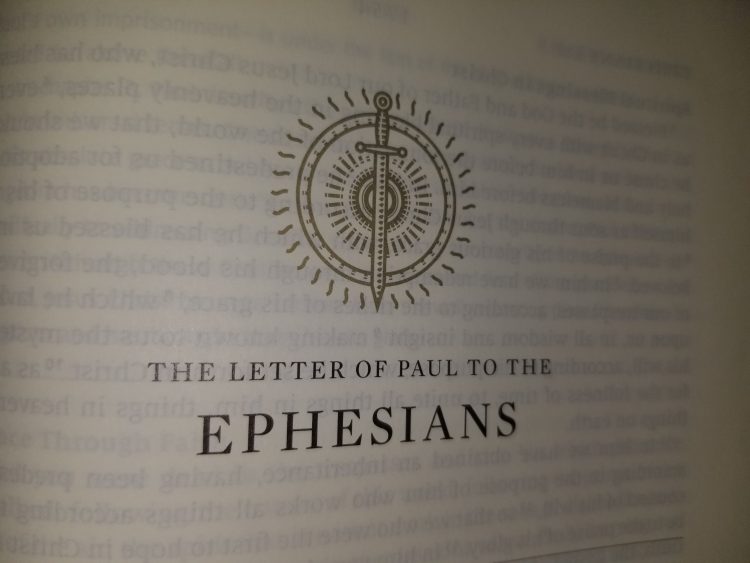⏱️ Estimated Reading Time: 7 min read
“Therefore remember that at one time you Gentiles in the flesh, called “the uncircumcision” by what is called the circumcision, which is made in the flesh by hands—remember that you were at that time separated from Christ, alienated from the commonwealth of Israel and strangers to the covenants of promise, having no hope and without God in the world” (Ephesians 2:11-12).
“Therefore remember.” Early on in my walk with the Lord, I heard a pastor say, “When you see a ‘therefore’ in the Bible, read backwards until you see what it’s there for.” The word “therefore” implies, “What I’m about to say is based on, founded on, and rooted in what I just said.”
In this case, the word “therefore” is referring to Ephesians 2:1-10 which is the story of the super-abundant, unexpected, inexplicable, incomprehensible mercy of God that’s flowing out of the being of God, through Jesus Christ, into the lives of sinners like you and me. It’s the story of a gracious God who not only forgave our sins in Christ, but made us alive with Christ, raised us up with Christ, and seated us with Christ at his right hand in the heavenly places so that we rule with him, by grace, even this very moment. It’s the story of a gracious God who not only poured out such amazing mercy upon us but also made us vessels of mercy that we might now touch and bless others with the very mercy that’s pouring into and through our lives.
“Therefore remember.” This exhortation is very helpful because we humans are pretty good at forgetting. The first time I read the Bible I was very frustrated with the Jewish people because they constantly forgot the amazing things that God did for them. For example, he freed them from the greatest political power on the earth, and the split the Red Sea so that they could pass through as if it was dry land. And yet, in no time they forgot, they grumbled, they rebelled against God and even wished that he had left them in slavery! But as I walked with the Lord for five then ten then twenty years, I came to see that I’m just like them. I forget so much of what God has said and done and then live in unbelief.
Friends, we are so apt to forget to the Lord was gracious to inspire Paul to write these words: “Therefore remember.”
What Are We to Remember?
So, what specifically does Paul want us to remember? He wants us to remember everything he’s about to say in Ephesians 2:11-22, beginning with verses 11-12. With regard to these two verses, Paul wants us to remember that before we were in Christ, we were utterly hopeless people. He writes, “Therefore remember that at one time you Gentiles in the flesh, called ‘the uncircumcision’ by what is called the circumcision, which is made in the flesh by hands—remember that you were at that time separated from Christ, alienated from the commonwealth of Israel and strangers to the covenants of promise, having no hope and without God in the world.”
In the Greek text, the word “Gentiles” is the same one from which we get our word “ethnic.” This word means “nations,” or more properly speaking, “people groups.” It refers not so much to nation-states—like the United States or Mexico or Canada—but to culturally united and similar peoples. When Paul calls us Gentiles in the flesh or Gentiles by birth, he’s referring to all people groups that are not Jewish.
This is why Paul invoked the words “the uncircumcision” in the middle of verse eleven. This was a somewhat derogatory term used by the Jews to refer to anyone who was not a Jew. If any of you grew up around Jewish people, you know that to this day they refer to non-Jews as “goy” or “goyim,” which is a Hebrew word meaning Gentiles or non-Jewish people groups. In much the same way, the Jews of the first century referred to non-Jews as “the uncircumcision.”
So, Paul first wants us to remember this: before we were in Christ, we were utterly hopeless people in that (1) we were utterly separated from Christ, (2) we were alienated from the commonwealth of Israel, which means that we did not have the privileges and rights of citizenship in Israel, (3) we were strangers to the covenant of promise first given to Abraham, and therefore, (4) we were without hope and without God in the world. Friends, that’s a very bleak picture!
However, one of the things I love most about the Lord is that he always tells us the truth! The Bible says that Jesus Christ came into the world full of grace and truth. He came into the world to seek and save sinners like us, but in order to do that he had to, and he has to, tell us the truth about ourselves. Jesus has an unwavering commitment to this, no matter how difficult it is to tell and hear the truth. The world will not tell us the truth; the devil will not tell us the truth; we will not even tell ourselves the truth. But God in his mercy will always tell us the truth. And the truth is that before we were in Christ, we were separated, alienated strangers to the covenants of promise who had no hope and were without God in the world. Remember this, remember this, remember this!
How Did We Come to be So Hopeless?
How did the nations of the world come to be in such a deplorable state? First, we came to be in this state because of the hardness of our own hearts—we got ourselves into this mess. It wasn’t the devil; it wasn’t the world; it wasn’t because our parents raised us wrong—it was because of the hardness of our own hearts. Please look with me at Ephesians 4:17-19: “Now this I say and testify in the Lord, that you must no longer walk as the Gentiles do, in the futility of their minds. They are darkened in their understanding, alienated from the life of God [WHY] because of the ignorance that is in them, due to their hardness of heart. They have become callous and have given themselves up to sensuality, greedy to practice every kind of impurity.”
Second, we came to be in this state because of a choice God made: God, in making a way for us to be saved, chose the Jewish people out of all the nations on the earth, gave them his covenants of promise, and to some extent excluded the rest of us until Christ came. This is why we were alienated from the commonwealth of Israel and strangers to the covenants of promise. Now, this does not mean that God completely forsook all of the other nations of the earth. To the contrary, God in his grace and mercy blessed nations other than Israel, and the Old Testament is full of proof of that fact. But it does mean that God took the Jews as his special possession and blessed them in ways that he did not bless any other nation (see Exodus 19:5-6; Deuteronomy 7:6-8). He did this first because it pleased him to do so, but more so, because he was preparing for himself a people to receive Jesus Christ, the King of Glory, into the world.
Contemplate Your Former Hopelessness
The reality of our spiritual condition before we were in Christ was as bleak as bleak can be: we were separated from God, we were alienated strangers to the covenants of promise, and we had neither hope nor God in the world. In verses 13-22, Paul goes on to help us understand what God did in Christ to transform this bleakness into eternal hope and joy. But before we meditate on that, we should first heed Paul’s exhortation and remember our former estate. Contemplating hopelessness does not feel pleasant, but it is very good because it sets us up to understand the glory of the gospel and experience a joy that is inexplicable and everlasting. Therefore, let us remember who we were before we were in Christ.




